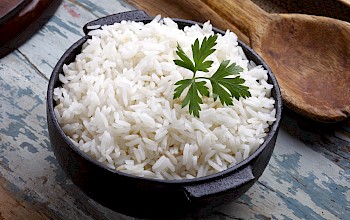Egg Roll: Calories and Nutrition Analyse
How many calories in fgg roll?
100g of fgg rolls have about 269 calories (kcal).
Calories per:
ounce
| one fgg roll
For instance, medium size fgg roll (85 g) has about 229 calories.
It is about 10% of daily calories intake for adult person with medium weight and medium activity (for calculation we assumed 2400 kcal daily intake).

Scroll down for details and nutrition tables.
To visualize how much 229 kcal actually is, take in mind that calories amount from fgg roll is similar to calories amount from ie.:
- 4 apples
- 2.5 glasses of Coca Cola (220 ml glass)
- 2 slices of cheese
- 2 slices of bread
- 1.5 glasses of milk
- 12 cubes of sugar
Take a look at tables below to see details about fgg roll nutrition.
See all nutrition data of fgg roll on charts.
Calories And Nutrition in Medium Size Fgg Roll (85 G), 100g and Ounce
| per 100 g | per ounce | medium size fgg roll (85 g) | |
|---|---|---|---|
| Calories | 269 | 76.26 | 228.7 |
| Carbs Total | 30.02 g | 8.51 g | 25.5 g |
| Dietary fiber | 2.3 g | 0.65 g | 2 g |
| Fat | 14.14 g | 4.01 g | 12 g |
| Protein | 5.62 g | 1.59 g | 4.8 g |
| Water | 48.38 g | 13.72 g | 41.1 g |
fgg roll - vitamins per 100g
- Vit B1 (Thiamine)0.264 mg
- Vit B2 (riboflavin)0.231 mg
- Vit B3 (Niacin)2.38 mg
- Vit B60.09 mg
- Vit B9 (Folic acid)0.071 mcg
- Vit C6.3 mg
- Vit E1.6 mg
- Vit K0.046 mg
Energy content of fgg roll
- 45% CARBS
- 8% PROTEIN
- 47% FAT
fgg roll - minerals per 100g
- Potassium210 mg
- Magnessium22 mg
- Calcium47 mg
- Sodium463 mg
- Iron1.86 mg
How many calories in 1, 2, 3 or 5 fgg rolls?
As I wrote before medium size fgg roll (85 g) have 229 calories. It is easy to count that two fgg rolls have about 458 calories and three fgg rolls have about 687 calories. In table below you can also see calories amount for four and five fgg rolls.
- Medium size fgg roll (85 g)229 kcal
- Ounce (oz) of fgg rolls76 kcal
- Half of medium size fgg roll114.5 kcal
- Small size fgg roll (68g)183.2 kcal
- Big size fgg roll (111g)297.7 kcal
- Two medium size fgg rolls458 kcal
- Three medium size fgg rolls687 kcal
- Four medium size fgg rolls916 kcal
- Five medium size fgg rolls1145 kcal
Protein in fgg roll
Fgg rolls have 5.62 g protein per 100g.
When you multiplay this value with weight of medium size fgg roll (85 g) you can see that you will get about 4.8 g of protein.
Carbs in fgg rolls
Fgg rolls have 30.02 g carbohydrates per 100g.
In the same way as for protein we can calculate that medium size fgg roll (85 g) has about 25.5 g of carbs.
Fat in fgg rolls
Fgg rolls have 14.14 g fat per 100g.
So it is easy to count that medium size fgg roll (85 g) has about 12 g of fat.

medium size fgg roll (85 g) has:
229kcalFor burning these calories you have to:Interesting charts - compare fgg roll with other ready to eat
When you look at charts below you will see how fgg roll looks like in comparsion to other products from its category. When you click on selected product you will se detailed comparsion.
Similar calories number have:
See also:
Read this:
- How many calories does potato pudding have?
- Calories in a half of tiramisu
- Calories in whole tiramisu
- Calories for one, two or more tiramisu
- Calories in slice of tiramisu
- How many carbs (carbohydrates) in omelette?
- How much fat in Bake Rolls?
- How much protein in catfish?
- What is weight of boiled egg?
- Turkey breast calories per ounce (oz)
- Raspberry juice (syrup) calories per serving size




Add comment